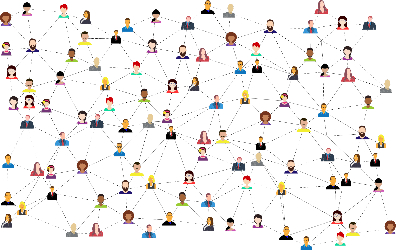


Peer Club
Online Peer Club is a place to come and share.
2
Posts
5
Members
5
Groups
Timeline Latest activities
01:00 PM
Daniel added a new post
Jan 1, 2025
12:56 PM
Daniel joined Peer support / Peer Coaches
Jan 1, 2025
12:56 PM
Daniel joined Peers / Neighbors
Jan 1, 2025
12:56 PM
Daniel joined Supervisor
Jan 1, 2025
11:38 PM
Ayah added a new post
Dec 12, 2024
Groups (5)
Peers / Neighbors
Online Peer Club is a place to come and share.
Being a peer one/ Neighbors that is of equal stand...
2
Posts
2
Members
Peer support / Peer Coac...
Online Peer Club is a place to come and share.
Being a peer one that is of equal standing with an...
0
Posts
1
Members
Peer Club
Online is a place to come and share.
Being a peer one/ Neighbors that is of equal standing with...
0
Posts
1
Members
Trending Feeds
Ayah
1 years ago
Peer support workers play an integral role in various sectors, including mental health, addiction recovery, and social services. These individuals utilize their lived experiences and personal insights to guide and empower others who are facing similar challenges. The essence of peer support lies in the shared understanding that comes from having navigated similar life circumstances, which fosters a unique bond between the peer support worker and those they assist. This relationship is built on trust, empathy, and mutual respect, creating a safe space for individuals to express their thoughts and feelings without fear of judgment. Peer support workers often serve as mentors, providing encouragement and motivation to those seeking to overcome obstacles in their lives. They help to normalize the experiences of those they support by sharing their own journeys, demonstrating that recovery and personal growth are achievable. This process can help reduce feelings of isolation and stigma, promoting a sense of belonging and community. Additionally, peer support workers are valuable resources for information about available services and resources in their communities. They can help individuals navigate complex systems, such as healthcare, housing, and employment, by sharing their knowledge and experiences. This not only empowers those they support but also helps bridge gaps in service delivery and ensures that individuals receive the appropriate support tailored to their needs. Training and certification for peer support workers vary across different regions and organizations. While formal education may not always be required, many programs emphasize the importance of skills such as active listening, conflict resolution, and boundarysetting. Peer support workers are often encouraged to participate in ongoing professional development to enhance their capabilities and adapt to the evolving needs of those they serve. The impact of peer support extends beyond individual relationships; it also influences the broader mental health and social service landscapes. By integrating peer support into traditional service models, organizations can create more comprehensive and holistic approaches to care. Studies have shown that peer support can lead to improved client outcomes, including increased engagement in treatment, reduced hospitalizations, and higher levels of satisfaction with services received. Additionally, peer support workers can contribute to policy discussions and advocacy efforts, providing a voice for those who may be marginalized or unheard. In summary, peer support workers are essential players in fostering recovery and resilience within communities. Their unique perspectives and experiences not only enhance the support provided to individuals but also promote broader systemic changes. As awareness of the importance of peer support continues to grow, it is vital to recognize and invest in these workers as integral members of the healthcare and social service teams.
